information and resources for parents
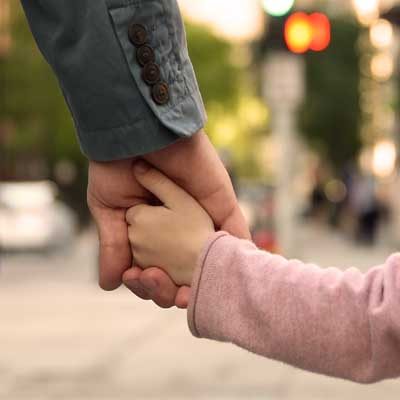 Please use the tabs to the left to access heaps of homeschooling resources covering a variety of topics.
Please use the tabs to the left to access heaps of homeschooling resources covering a variety of topics.
Parenthood.
Being a parent or carer is a special, rewarding and a wonderful experience. Many parents wouldn’t change it for the world.
In day to day life though, with the pressures of work and home, being a parent can be challenging and there are times when you may be unsure who to ask for advice and support.
Here at Services For Education we offer a wide range of guidance and resources that may just answer your questions.
For example questions about things like: emotional health and well-being, Assessment, Early Years (0-5), KS1 and KS2 SATs, Phonics and online safety.
If you regularly visit this page you will see a range of information, resources and support around topical themes.
Many of you may be continuing to work from home and that can be overwhelming, especially if you’re not used to remote, digital contact.
So, while it’s important to continue the work, it’s even more important to remain mindful and maintain your mental health and wellbeing.
Below, we have some resources and blogs to help you look after yourself.
Yoga With Adriene
These great YouTube Yoga videos for beginners great opportunity to start relaxing and stretching at the same time – with or without your children!
Young Minds
Young Minds have developed a range of parents’ wellbeing resources in the knowledge that your child’s mental health is mirrored by your own mental health and well being as a parent.
4 Ways to Stay Mindful Whilst Working from Home
In this Services For Education blog post, Emma reminds readers of some of the key, simple things you can do to stay mindful during such a strange time.
Young People’s Mental Health Services in Birmingham
The Youth City Board, is a group of young people aged 11 to 18 from across Birmingham that meet regularly to discuss their thoughts and feelings and share ideas about local and national issues. The Youth City Board and the Birmingham Children’s Partnership are working together to find out more about Young People’s experience of the Mental Health Services in Birmingham. Please help us to get as many children and young people involved as possible.
Pause – Telephone Based Mental Health Service
Pause is a fantastic free (NHS funded) drop in mental health facility. It is open access for young people (12 and above) AND all carers / teachers / parents concerned about children & young people.
Youth Sport Trust
A range of resources, including the 60 second active challenge series, to support those who still have children at home. The activities, resources and videos are designed to keep you moving, keep you learning and help support your physical, social and emotional wellbeing during lockdown.
Action for Children
Action For Children provide a range of resources to assist your skills to support your child’s mental health.
Every Mind Matters
Mental wellbeing while staying at home. The tips and advice here are things you can do now to help you keep on top of your mental wellbeing and cope with how you may feel while staying at home.
P.E With Joe
Joe Wicks The Body Coach hosts a range of workout options.
Keep a Gratitude Journal
Encourage children to keep a gratitude journal. Each day, spend six minutes writing about the following: three things you are grateful for, how you plan to make today great, a good deed you will do that day, how you plan to improve yourself and, at the end of it, some great things you experienced that day.
Tallulah the Owlet | A Cosmic Kids Yoga Adventure!
A fun yoga story for kids aged 3+ – about learning the meaning of wisdom.
Be the Pond | Cosmic Kids Zen Den – Mindfulness for kids
A short mindfulness video for kids.
Spend Time Outside
Buy a skipping rope and do 100 skips every day, play hopscotch or build an obstacle course in the garden and time yourselves completing it.
Compassion Matters
Compassion Matters provides a basis for children to explore ethical ideas about compassion and its related concepts.
What to Expect, When? Department For Education
This is a really useful document that you can purchase for a small fee. It was made specifically for you as a parent so that you know about how to support your child with their learning and development during their first 5 years in the Early Years Foundation Stage.
Reception Baseline Assessment: Information for Parents
This is a really useful document that you can download that provides information about what happens in school when your child is doing the Reception Baseline Assessment.
Statutory Framework for the Early Years Foundation Stage
This document sets the standards that all early years providers must meet to ensure that children from birth to five;
- learn and develop well
- kept healthy and safe
- have the knowledge and skills they need to start school.
Non-Statutory guidance – Development Matters
Development Matters document is used by early years providers to support them in understanding how children develop and learn.
Non-statutory guidance – Birth Five Matters
Birth to Five matters is a document is used by early years providers to support them in understanding how children develop and learn.
Information about the Early Years Foundation Stage
This is a useful link to read about what the ‘Early Years Foundation Stage’ is all about.
The Seven Areas of Learning
In the early years we focus on ‘Characteristics of effective learning’ how children learn, and seven areas of learning in the Early Years Foundation Stage:
Nancy Stewart Interview: The Characteristics of Effective Learning
Blog about how children learn.
1. Personal, Social and Emotion Development
Surrey County Council – Learn with me – child development tips for parents
Cards containing tips on how to help your child to become independent, sociable and happy.
A Fine Parent – Part of the Positive Parenting FAQ series
100 ways for parents to be silly and playful with their children
The Handinhand Blog
Useful advice for ‘playful’ parenting
The National Literacy Trust
A variety of literacy and wellbeing resources, including a list of books that can be read with you children to support their emotional wellbeing.
The School Run – Personal, social and emotional development in EYFS
Useful ideas for all ages – the school run – free 14 day trial
Action For Children – Things to Do With Your Child
A list of inexpensive and easy activities you can do with your children.
Understood – 5 Social-Emotional Learning Games to Play With Your Child
A handful of social-emotional learning activities that can help your child manage emotions and work on social skills—and have some fun with you along the way.
Family Lives – Why Play Matters
The importance of how children learn through play.
2. Physical Development – Moving and Handling/Health and Self-care
Surrey County Council – Learn with me – child development tips for parents
Cards containing tips on how to help your child to become independent, sociable and happy.
Baby Centre
Blog post with activities that boost children’s physical development.
Imagination Tree – 40 Fine Motor Skills Activities
Here is a collection of 40 fine motor skills activities for young children that are easy to set up and promote a whole range of skills.
Active For Life – 49 fun Physical Activities you can do with children
This list of 49 fun activities for kids is the ultimate go-to for any playdate, home child care setting, or a morning or afternoon with a caregiver.
Family and Childcare Trust – Find Childcare and Family Services in your area
Your local Family Information Service (FIS) provides a range of information for parents from details of local childcare and early years provision to family activities in your area.
NHS information about toilet training
How to potty train – Your pregnancy and baby guide
Stem Learning – Healthy Eating Ideas
These resources have been provided by the British Nutrition Foundation.
Early Years Staffroom
When the Unthinkable Happens. What should you do at home during self-isolation for a long period?
3. Communication and Language – Listening, Understanding & Speaking
Tiny Happy People
Parents and carers, Tiny Happy People can help you develop your child’s communication skills. Explore simple activities and play ideas and find out about early development.
DfE Hungry Little Minds
A Parent App devised by the Department for Education to support children’s communication.
Words for Life
Words for Life is a website for parents to help their children develop vital communication and literacy skills from birth to age eleven.
Communication Trust
A great website with lots of useful information for parents about the importance of communication.
Surrey County Council – Talking with our child
Ideas for talking with you child – for 0-5 year olds.
Family
A great blog about Playful ways to encourage children’s’ speech and language development – 10 top tips for developing children’s speech
Nursery World
Useful article about how to support our child to develop their speaking skills.
Literacy Trust
Lot of useful ideas to support your child with speaking and listening.
I CAN
‘I CAN’ charity helps children to communicate and provides parents with useful ideas.
Demo
A calendar of fun ideas for speaking and listening.
4. Literacy – Reading and Writing
Bookstart
Ideas and clips about how to read with your child.
BBC Bitesize
Top tips for reading with your child.
Happy You Happy Family
48 All-time best picture books.
Surrey County Council
Reading tips – for parents with children ages 0-5
Cbeebies
Reading ideas at home.
Communication Trust
Have fun reading ideas.
Teach your monster to read
Ideas to support you children at home to read
Family
Practical ideas for reading.
BBC Schools
Online resources
Early learning HQ
Ideas and information about phonics – ( Please note – Letters and Sounds – Phase 1 – Nursery/ Phases 2-4 – Reception/Phase 5 Year One and Phase 6 Year 2).
Letters and Sounds
Letters and Sounds provides resources for teaching phonics. (Please note I advise the teaching of Phase 1 – Nursery, Phase 2-4 Reception, Phase 5 Year 1 and Phase 6 Year 2).
Family
Blog for parents about writing in the early years.
Surrey Council
Write with leaflets for parents for different ages 0-5.
Spread the Happiness
Helping your child to write, please visit Spread the Happiness. Have look at this website as there are lots of useful ideas to encourage your child to make marks which will then help them with their writing. Look at ‘dough disco’ and ‘squiggle while you wiggle’ as lots of schools use these approaches
Make Believe Arts
Helicopter Stories is based on the Storytelling and Story Acting curriculum of renowned Early Years practitioner Vivian Gussin Paley. Have a look at their website and look at the clips that are YouTube as Trisha Lee explains the approach. Adapt it for your home learning environment and make your child become a storyteller and actor.
5. Mathematics
NRich Maths
NRich Maths has a range of maths resources, documents and activities for children
I See Maths
Useful information about mathematical concepts in the early years.
White Rose Maths
Some great ideas of how to use picture books for learning about maths.
Oxford Owl
Information about learning maths for all ages.
National Numeracy
Maths ideas for children.
Parents in Touch
Support parents in helping their child to learn mathematics at home.
Third Space Learning
Third Space Learning has ideas for maths games at home.
Mathematics Shed
Ideas for maths at home
Outdoor Classroom Day
Ideas for ‘messy maths’ outdoors
Foundation Years
The Foundation Years website is packed full of useful maths information and resources, including a number of “top ten” lists which highlight the best resources, activities and websites for you.
6. Expressive Arts and Design
The Curiosity Approach
Amazing ideas to bring the “Curiosity Approach” into your teaching (from home). Their blog has a wealth of resources which might be of interest.
Out of the Ark Music
Out of the Ark Music has lots of ideas to support your child with music at home.
Ooey Gooey
Ooey Gooey has fun and practical ideas of learning through play.
Musical Development Matters
Musical Development is a guidance document with an accompanying online resource, created by Nicola Burke. The overall purpose of Musical Development Matters is to support practitioners, teachers, musicians and parents to see the musical attributes of young children and to offer ideas as to how they can support and nurture children’s musical development by offering broad musical experiences.
Nursery World
This is a great article with useful ideas: EYFS Best Practice: Be Specific … Expressive Arts and Design.
Early Years Educator Eye
A range of practical articles and expert features that cover expressive arts and design to help you develop these skills and overcome challenges you might encounter.
Teaching Cave
Fun ideas for teaching your child about dance.
Teach Early Years – How Dance Boosts Development in the Early Years
Article about the importance of dance and ideas too.
Pacey – Getting to grips with loose parts play
Find out more about “loose parts play” and how it can benefit your child.
Twinkl – Design and Technology
Twinkl has lots of idea, but this link is specifically for design and technology in the eyfs.
7. Understanding the World
Family – EYFS Focus – 9 Activities To Help Kids in Understanding The World
Read the blog and subscribe to a booklet of 50 ideas.
Early Years Educator
Really useful information and ideas about ‘What is understanding of the world in the EYFS?’
Play England
Ideas about the importance of play for children.
Woodland Trust
The Woodland Trust have shared 10 great nature activities for children who are self-isolating.
Insect Lore
Insect Lore is the top provider of high quality live caterpillars, butterfly gardens, kits, live insects, insect habitats, toys and gifts for kids.
First Discoverers
A website that provides parents with science based activities that are ‘hand on’ and fun!
Association for Science Education
The Association for Science Education (ASE) is the largest subject association in the UK. We are an active membership body that has been supporting all those involved in science education from pre-school to higher education for over 100 years. Visit their website for ideas for children from birth to 16+
Cbeebies – Go Jetters
Talk to your child about the places that the Go Jetters visit around the world.
Cbeebies – Our Family
This is a great resource to help children learn about different family traditions, cultures and religions.
Early Years Resources
Learn about past and present by comparing the then and now.
The Book of Hopes: Words and Pictures to Comfort, Inspire and Entertain Children
Completely free for everyone to read online, this extraordinary collection of short stories, poems, essays and pictures has contributions from more than 110 children’s writers and illustrators, including Lauren Child, Anthony Horowitz, Greg James and Chris Smith, Michael Morpurgo, Liz Pichon, Axel Scheffler, Francesca Simon and Jacqueline Wilson.
Roald Dahl – Things to Do Indoors
Some great activities and resources to distract you, entertain you or just cheer you up.
Free Handwriting and Alphabet Practice Sheets
Fun and engaging activities that will help your child learn letter and word formation, build pencil control and establish a solid writing foundation. Download them here.
Love Reading For Kids
LoveReading4Kids is the biggest and best recommendation site for children’s books.
BookTrust – Getting Children Reading
BookTrust transforms lives by getting children and families reading. This blog is worth a read: Tips and Advice on Reading With Your Child
Researchify
Free children’s books for you to download – including PDFs and audiobooks.
The Literacy Shed
The Literacy Shed is home to a wealth of visual resources that we have collected over 10 years as a primary school teacher.
Children’s wellbeing booklist – The National Literacy Trust
All the books on the children’s wellbeing booklist are available from the Literacy Trust to watch or read online for free. Use them to help your child make sense of the changes around them.
Short tips for parents of primary-aged children to make reading enjoyable.
10 top tips for parents to support children to read
Third Space Resources For Parents
Third Space learning have put together a collection of free guides aimed at helping parents teach maths topics at home.
Play Strategy Games
Have fun! Play battleships, lego, games of strategy, do puzzles together, build a fort, make a newspaper bridge across the living room and think about how to make it strong enough to hold toy cars etc.
Design Your Own Board Game
Design your own maths board game, colour it in, make it beautiful and then have loads of fun playing it.
NRICH Maths
NRich maths has a wealth of activities and a dedicated primary interactive resource page with games and a whole host of maths fun.
I See Maths
Gareth Metcalfe offers free, home learning maths content, aimed at children aged 7-11. These are challenges and games which stimulate children to think mathematically.
OxfordOwl
OxfordOwl is for children aged 3-11 and includes a selection of maths games, activity sheets and videos.
MathsBot – Manipulatives
Use the online counters, coins and place value bars etc. to help your child solve addition, subtraction, multiplication and division problems you have set for them (or they have set for you!) and ask your child to PROVE their answer is right using the resources too. Play, make patterns and talk about them with the manipulatives.
MathsBot – Loop Cards
Generate a set of loop cards for addition or whatever you want to practice, (you can amend the difficulty in the top right hand corner). Print them off, cut them out and share them between you and your child(ren). Whoever has ‘start’ puts that card down. Whoever has the answer at the top of one of their cards, places it next to the first card and play continues until the loop is complete.
You can add competition by playing first person to play all of their cards is the winner or by having the cards face down and players take turns to turn one over and look for ‘start’, then the answer, then the next answer and so on…
White Rose Maths
White Rose Maths have prepared a series of maths lessons for each year group (Years 1-8). Every lesson has a video and activity.
Countdown
Watch Countdown together and have a go at the numbers round. Generate your own numbers and play without the time limit but discuss your approaches and strategies – what did you notice first that enabled you to reach the answer.?
Paper Aeroplanes
Make paper aeroplanes and measure whose flies the furthest. Try to better your distance. Unfold the aeroplane and discuss what shapes you can see, colour them in in different categories ie isosceles triangles in one design, quadrilaterals another.
Star Jumps
How many star jumps can you do in 30 seconds? How many do you estimate you could do in 2 minutes then? Test it! Repeat for other activities; how many goals can you score in 1 minute? How long can you hold a handstand for?
Play Cards
Teach your child(ren) some of your favourite card games. If you know how to play Newmarket, you could use matchsticks or rolled up bits of paper if you don’t have a jar or bag of pennies to play with.
Skip Counting by 2 Song
The fun way to practice your two times tables, from NumberRock
Times Tables Rockstars
Times Tables Rockstars are offering affected schools free full access to their platform for multiplication and division – throughout any school closure.
Third Space Maths Hub
Resources to raise maths attainment for all pupils, Third Space have an area for parents.
National Centre for Excellence in the Teaching of Mathematics
Support for parents and carers helping children with maths. Registration is free.
RSPB Big Schools’ Birdwatch
During January and February the RSPB will be running their annual citizen science project, the Big School’s Birdwatch. RSPB Big Schools’ Birdwatch – 5th January to 21st February 2022 | STEM
Simple STEM activities to do at home
STEM Learning have got a variety of different activities and resources to use during this time, including the “padlock challenge.“
National Geographic Kids
This child-friendly website is great to teach and inspire children and is filled with fun and unique activities – like How to Make a Paper Bowl Jellyfish!
NASA Kids’ Club
A place to play games and learn about space. These games support national education standards in STEM — science, technology, engineering and mathematics.
Why and How? Primary Science Teaching Trust
This website offers a variety of different resources covering many topics, including things like “Titanic Science,” “Growing Music” and “Garden Watch.”
5 Science Experiments You Can Do At Home
Make science fun with these fantastic experiments!
STEM Learning
This Planet Science collection for parents contains a selection of appealing science-based activities for students and their parents which are designed to entertain and make science an enjoyable activity for all.
WOW Science
A child friendly gateway to high quality primary science resources on the internet and beyond. Resources for children to explore either alone or together with their parents.
First Discovers
A website that provides parents with science based activities that are ‘hand on’ and fun!
Association for Science Education
The Association for Science Education (ASE) is the largest subject association in the UK. We are an active membership body that has been supporting all those involved in science education from pre-school to higher education for over 100 years.
63 Easy Science Experiments for Kids to Do at Home – Mommy Poppins
You can actually do some pretty mind-blowing, hands-on science experiments at home using stuff you probably have lying around the house.
Science Bob – Experiments
A variety of science experiments you can do at home!
Sublime Science – 101 Sublime Science Experiments
101 awesomely fun science experiments you can do at home with ‘stuff’ you’ve already got from Dragons’ Den winner and Sublime Science founder, Mad Marc (Wileman!)
Primary Music Resources
BBC Nursery Rhymes and Songs (0-5 years old)
Animations of some of the best-known traditional nursery rhymes, mainly sung by BBC Children’s TV presenters, with music that your children will love. Listen now.
BBC Primary Music – KS1 / KS2
Primary Music takes a cross-curricular approach, with music objectives explored in relation to popular infant topics or related areas of the curriculum.
BBC Physical Education / Music KS1: Dance with the Elements
Dances for each of the four element have been choreographed to different pieces of classical music including JS Bach, Karl Jenkins, Aaron Copland, Johann Strauss, Claude Debussy and John Adams.
BBC Bring the Noise – KS1/KS2
5 musical ideas to try with children at home. If you’re self isolating or caring for children at home with schools closed these simple ideas will help keep little ones occupied while encouraging them to explore and learn about music.
BBC Ten Pieces (7-11 years old)
Explore the stories and secrets hidden in these classical pieces of music. For each piece you will find free teaching resources, exciting short films, lesson plans, arrangements and more. Get started.
KS2 BBC Bitesize (7-11 years old)
Exploration of the main musical elements and key concepts with examples. Find out more.
Royal Opera House : Hansel and Gretel Immersive KS1/KS2
Join CITV presenter Luke Franks as he visits the Royal Opera House and meets a host of young singers who introduce him to the opera Hansel and Gretel.
Twinkl – KS1 Music
Learn about different instruments, musical genres and basic composition with our Primary Music Resources for Key Stage 1 students.
Out of the Ark Music (5-11 years old)
To help with the rhythms and routines of your new daily life, Out of the Ark Music are releasing seven songs, one for each day, all with challenges and activities related to each song.
The Beat Goes On (5-11 years old)
Beat Goes On is a collection of body percussion videos. The founder of this company, Ollie Tunmer (a former cast member of the hit show STOMP) will be streaming a live body percussion workshop every day at 11am on his YouTube channel. No instruments required!
Secondary Music Resources
BBC Music KS3 / GCSE: Music technology
A series of clips aimed at informing and enabling music students to understand the techniques and technology involved in music making.
Berliner Philharmonie – Digital Concert Hall
The venue may be closed but Berliner Philharmonie is bringing the music to you at home with free access to all concerts and films.
The Beat Goes On (KS3)
Beat Goes On is a collection of body percussion videos. The founder of this company, Ollie Tunmer (a former cast member of the hit show STOMP) will be streaming a live body percussion workshop every day at 11am on his YouTube channel. No instruments required!
Introduction to Music Technology (KS3 and KS4)
Introductory videos to music technology applicable to both KS3 and KS4 students.
Focus on Sound Pro
Designed for school teachers, Music First are offering FREE use of this cloud based platform during this period of school closure.
Writing a rap – FREE resource and competition (KS3)
Practical resources for writing a rap and how to generate ideas. Also includes details of how to enter a competition.
BBC Ten Pieces (KS3)
Explore the stories and secrets hidden in these classical pieces of music. For each piece you will find free teaching resources, exciting short films, lesson plans, arrangements and more.
SEND Music Resources
BBC Bring the Noise – SEND music teaching guides and tutorials
A series of short films demonstrating different techniques for teaching music activities to SEND pupils.
BBC Bring the Noise – Five songs in British Sign Language (BSL)
BBC Bring the Noise have produced five films with songs in British Sign Language (BSL). Learn to sign and dance-a-long to the songs.
Bloom (App)
Bloom creates a relaxing ambience that is visually pleasing. Makes drone like sounds by tapping on a colourful screen. It can motivate students to sing or hum over the top and sounds particularly cool with metal percussion (this could be improvised using household items !)
Loopseque/Loopseque kids (App)
Create a beat by touching light up squares on a screen. Loopseque can be used to teach rhythm and pulse by getting students to move/tap or play in time. Can also motivate them to improvise over the top and can encourage students to sing if they have a funky beat to back them.
Thumb Jam and Garage Band (Apps)
Both give access to a variety of high quality instrumental sounds .Can play expressively using dynamics(loud and soft) . Both apps have the ability to record and layer up tracks which encourages creativity and allows students to listen back and reflect.
Skratch (App)
Skratch is a simple pad instrument that you can record 4 different sounds into. Could be instrumental,vocal or everyday sounds. Press the coloured pads to make some music. Could also make up games of trying to copy the sequence or press the correct colour.
Bla Bla Bla (App)
Faces move when a sound is made. Bla Bla Bla can help motivate students to make a sound or they could interact by trying to imitate the faces.
Toca Band (App)
Create your own band using cute colourful characters, with Toca Band. Can just enjoy jamming and experimenting with different characters or use it as a backing track for other activities such as dancing , feeling the beat or doing actions.
Musical Autoharp (App)
A nice sounding instrument that is easy to play by swiping a finger up and down the screen. Musical Autoharp could be used to improvise or do musical activities such as going up and down, playing and stopping or fast and slow.
Bebot (App)
Bebot is a robot synth that moves and makes faces while you play. A lot of fun and could be used in a similar way to the autoharp. Also able to change the settings so it plays in a different key or makes a slightly different sound.
Korg iKaossilator (App)
A sophisticated synth app in which you can have a lot of fun making music and recording loops. Has rhythms already loaded onto it and is visually pleasing . A great tool to sing, rap or play over the top of or just have a good old boogie !
General Resources and Activities
Classics For Kids
Find out about composers, play games and download activity sheets via this fun website “Classics for Kids.“
MusicTheory.net
Free online music theory lessons.
Carnegie Hall
Carnegie Hall presents The Young Person’s Guide to the Orchestra
Charanga Rap Competition
Aspiring rapper? Check this out: Writing a rap: free VIP resources and competitions.
London Symphony Orchestra – Resources For Teachers
Use these digital resources created for teachers to help plan and deliver creative, fun and educational music activities at home.
Learning Synths
On this website, you’ll learn the basics of using synthesizers (or synths). No prior experience or equipment is required; you’ll do everything right here in your browser.
Chrome Music Lab
Chrome Music Lab is a website that makes learning music more accessible through fun, hands-on experiments.
Musical Contexts
Tried and tested music resources for teachers which can be adapted for home learning.
Mini Moog
The Minimoog Model D App is a mobile transmutation of the world’s first portable synthesizer, the Minimoog Model D®. Check it here.
SFE Music School
At Services For Education, we firmly believe that music has the power to encourage, transform and inspire, like no other art form can. Research shows that these changes can come in the form of improving well-being, instilling confidence, increased intellectual development, creating friendships, to name but a few. Find out more here.
Peacemakers
Ideas and activities that you can use in circles – to help build relationships and explore the social and emotional impacts of pupils’ experiences of lockdown.
NATRE (National Association of Teachers of Religious Education)
RE Today is supporting NATRE by providing all teachers (and parents) with free resources which they can use to support with home learning.
New RE films from BBC Bitesize
BBC Bitesize have created 22 RE short films for 11-14 year olds, covering a range of topics and religions.
RSPB Big Schools’ Birdwatch
During January and February the RSPB will be running their annual citizen science project, the Big School’s Birdwatch. RSPB Big Schools’ Birdwatch – 5th January to 21st February 2022 | STEM
Try This Teaching – Offline Learning
Offline learning resource: non-screen activities you can do at home.
Splice – Video Editor & Maker
Simple yet powerful (and really fun), Splice makes it easy to create fully customized, professional-looking videos on your iPhone, iPad.
Cook Dinner Together
Get children to help cook the dinner – teach them how to safely chop an onion and make a spaghetti bolognese or other basic, everyday dinner dishes. There are plenty of websites with child friendly recipes including The Great Grub Club.
Eggsperiment
Teach your child to make an omelette or be creative with scrambled eggs to individualise theirs for flavour. Add chives from the garden, ketchup, cheese or think of other salt free ways to add flavour.
Gardening
With more “free” time, it’s a great opportunity to get on top of your gardening, especially now you have some full time little helpers too. Check out these YouTube videos for inspiration.
Tree Tools For Schools
The Woodland Trust provide lots of ideas, activities and worksheets for identifying and working with nature, wood, fungi and wildlife to help you get outside into the garden or a nearby forest or park if possible.
Herb Garden
Pick overgrown herbs from your garden and dry them. Make labels for jars and plan recipes you could cook with them.
The Lego Challenge
If you live with LEGO fans, issue them a 30-Day LEGO Challenge and let their imaginations run wild! Download the resource here.
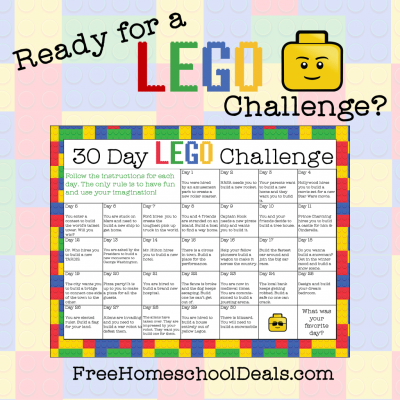
The Education Hub – sharing resources for all children at home
Due to the current situation with coronavirus (covid-19), home educators are now sharing their resources for all children at home.
Department of Education – My Activity Passport
An editable activity checklist for children under 11, giving young people the opportunity to try new things and develop new skills can be hugely beneficial. Click here for supporting resources.
Hungry Little Minds
Simple, fun activities for kids, from newborn to five.
Time Magazine
The Secret to Keeping Your Kids Happy, Busy and Learning if Their School Closes Due to Coronavirus – read the article here
Try Out These Recipes
Our 2020 Cookathon featuring Michelin Star Chef Glynn Purnell took place on Tuesday 11th February 2020. You can use our video and recipe below.
Download Glynn Purnell’s Winter Vegetable Soup recipe here.
On 23rd October, our Health For Life schools took part in a cookathon to promote healthy living. The cooking is demonstrated by award winning chef Marcus Bean. You can watch the video and download the recipes, below.
Download our Root Vegetable Recipe here.
And the Homemade Bread Recipe here.
Chores!
You could even get the children to help you out with the household chores…
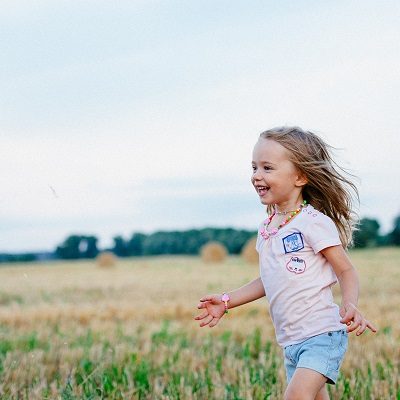 Safeguarding
Safeguarding
Safeguarding is the process of protecting children (and vulnerable adults) from harm and promoting their welfare. The part of safeguarding which looks at supporting children who are at risk of significant harm through abuse and neglect is called Child Protection. We work to make sure children are physically safe and also that they emotionally feel safe and well.
Safeguarding is everyone’s responsibility and schools have a legal duty to ensure that all of their staff receive regular training in safeguarding (annual training and regular updates) so that they know how to recognise signs that a child may be harmed and knowing what action to take. There are certain staff who have extra training and responsibilities who are called Designated Safeguarding Leads (DSLs). DSLs liaise with other organisations and the Local Authority in matters of Child Protection.
Recently more and more organisations that work with children, such as sports clubs, scouts, youth clubs, have strengthened their safeguarding procedures, practice and training.
Safeguarding is also a fundamental part of being a parent or carer. There are many avenues of information, advice and resources that can help you to be more informed. At its most basic level our children need to know which situations they encounter in life are safe and which are potentially unsafe. They need to know who they can contact, and how to do this, in order to get the necessary help and support. Schools must teach children about aspects of safeguarding in the curriculum (as detailed in the statutory guidance document Keeping Children Safe in Education), but this can be supplemented by discussions at home.
Example discussion topics at home might include:
- What to do if you find yourself alone in a public place – discussions might be about approaching safe strangers (such as police or shopkeepers as they are identifiable) and asking for help or learning phone numbers off-by-heart
- Who you can talk to if you have a problem – discussions might be about naming different trusted adults a child knows at home, school and in the community and also children might nominate a friend to help them approach an adult
- How to stay safer online – discussions might be about the reasons there are PEGI ratings on computer games, why sharing your personal information online to a stranger might not be a good idea or talking to children about how games encourage you to spend more “virtual currency” through things such as “loot boxes”
Safeguarding Resources
Safe Travel Yr 6 Police Resources
West Midlands Police have put together some resources to help your students feel confident to travel and also how to behave responsibly and safely while travelling to and from school. The resources can be covered in class or as an independent activity for students to complete at home.
- Travelling to Secondary School presentation
- Travelling to Secondary School worksheets and plenary work
- Travelling to Secondary School accompanying notes
- Safer Travel: What does a bus journey look like now?
- Safer Travel – what does a metro journey look like now?
- Getting through our stations – some things may have changed to help with social distancing
The Parents’ Guide to Teaching your Teen Online Safety – My Tutor
A practical guide for parents on how to keep teens safe online, including useful summaries of popular internet apps as well as the types of threats teens, could be exposed to online.
Interactive Anti-Bullying Information Tool for Parents and Carers
What is bullying? Check out this interactive informational tool for parents, created by Anti-Bullying Alliance.
Services For Education – Online Safeguarding Course
Do you work with children on a paid or voluntary basis? Perhaps you run a club or help out with extra-curricular activities? Services For Education is a trusted provider of safeguarding training in the UK, offering online, face-to-face and bespoke options for organisations and individuals. We have created an online safeguarding course for anyone who works with children, enabling them to stay up to date and show that they are fulfilling their duty of care.
Parents & Carers – Birmingham Safeguarding Children Partnership (lscpbirmingham.org.uk)
Birmingham’s Local Safeguarding Children Partnership has useful links to a variety of advice for parents.
Keeping children safe during community activities, after-school clubs and tuition: Questions to help parents and carers choose out-of-school settings – GOV.UK (www.gov.uk)
“Keeping children safe during community activities, after-school clubs and tuition: Questions to help parents and carers choose out-of-school settings” is a non statutory document that contains lots of useful prompts if you are choosing an extra-curriculuar activity for your child and want to check it seems a safe environment.
https://www.ceop.police.uk/safety-centre/
Online safety is crucial for our young people to learn about but also for us to monitor their online lives. CEOP has some great advice for parents and young people and links to other organisations such as Childline:
Internet Safety Videos From NSPCC and BBC
Jessie & Friends: Online Safety Education for 4-7s
This fantastic set of animations from the CEOP Education team is aimed at children between four and seven years old and will help protect them from sexual abuse and other risks associated with being online.
Parenting Group – UCB
An informal drop-in group for parents with concerns about their child or teenager and any of these issues.
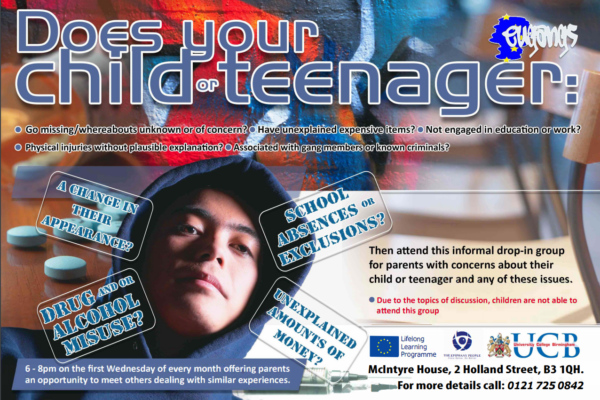
our latest posts for parents
Big Give Update
At the end of November, Services For Education took part in our very first Big...
Jan
Encouraging a Sustainable, Proactive Approach to Healthy Eating Within Your School
With our Cookathon fast approaching, Education Adviser and Health for Life lead, Helen Grundy, shares her...
Jan
SFE’s Magical Music Moments of 2023
The festive season has once again arrived and we’re reaching that wonderful time of year...
Dec
Israel-Palestine: Educating During a Crisis
SFE Religious Education Adviser Dr Simone Whitehouse-James Responds to the Current Crisis in Israel/Palestine, Sharing...
Oct
11 Activities To Do With Children In Birmingham, This Easter
I don’t know about you… but Easter has crept up pretty quickly on me this...
Apr
6 Fun Science Activities To Do With Kids In Birmingham
Searching for the perfect educational day out? Then look no further. Our list of family-friendly...
Mar
“Beautiful Tone, Beautiful Heart” – New Instructional Videos For String Players
“Beautiful tone, beautiful heart.” So said Sinichi Suzuki and we agree that finding and enjoying...
Jun
SFE Summer Brass Academy Soloist Showcase
Welcome to our soloist showcase, which forms part of this year’s Summer Brass Academy! The...
May
School reports on pupil performance: guide for headteachers
Government guidance for schools on writing statutory end of year reports for parents.
Reporting to parents at the end of key stages 1 and 2
Government guidance for schools on writing statutory end of year reports for parents.
Awarding Qualifications in Summer 2020
Information for schools, students and parents on how GCSE, AS, A level, vocational and technical qualifications will be graded and awarded in summer 2020.
Ofsted Parent View
Give your views about your child’s school with Ofsted’s new online survey including how happy they are and how safe they feel.
Reception Baseline Assessment Video for Parents – Department of Education
Key stage 1 and 2 National Curriculum Tests: Information for Parents
Information leaflet and videos for parents about end of key stage assessments (often referred to as SATs) for 7 and 11 year olds.
Video One: New pre-key stage standards in primary schools
As recommended by the Rochford Review of assessment arrangements for pupils working below the standard of the national curriculum, from the academic year 2018/19 primary school teachers will use new pre-key stage standards for key stage 1 and key stage 2. In this video, Diane Rochford and Janet Thompson tell us more about the pre-key stage standards.
Video Two: National curriculum tests (SATs) at key stage 1
Information for parents of pupils in year 2, typically aged 7, about assessments in May.
Video Three: National curriculum tests (SATs) at key stage 2
Information for parents of pupils in year 6, typically aged 11, about assessments in May.
The engagement model: information for parents. This leaflet contains information for parents about the engagement model teacher assessment tool.
We have just launched a series of free English and Maths videos for Elective Home Educators which aim to provide strategies, approaches and resources to best develop your child’s skills and understanding. The courses are focused for those home educating children in the primary age range and include practical exercises and materials to use at home.
Find out more and sign up to the courses here.
Written and presented by our English and Maths experts, each video is about 20-30 minutes long, and most include a downloadable ‘workbook’. You can listen as many times as you like to videos which are designed to help enhance your skills and confidence in supporting your child in these key areas.
At Services For Education, we believe that the ensemble experience is absolutely crucial to any high-quality musical education.
That’s why, every year we bring together over 2,000 young musicians from across Birmingham, to form over 70 ensembles, which are free to join, and are specifically designed to cater for all genres and abilities.
We run two types of Ensembles in Birmingham; Central Ensembles which require an audition and Area Ensembles which do not.
If you regularly visit this page you will see a range of information, resources and support around topical themes. Leave your email below if you’d like to be kept up to date.

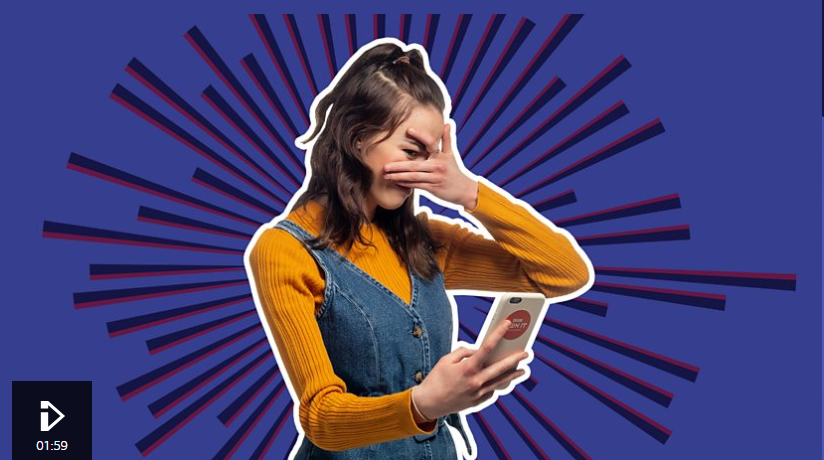
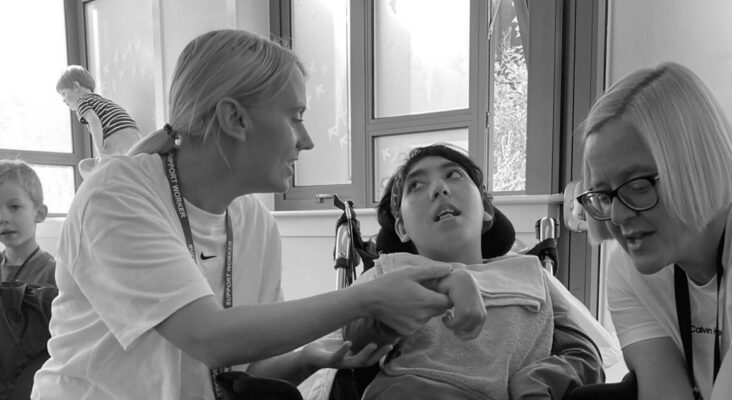
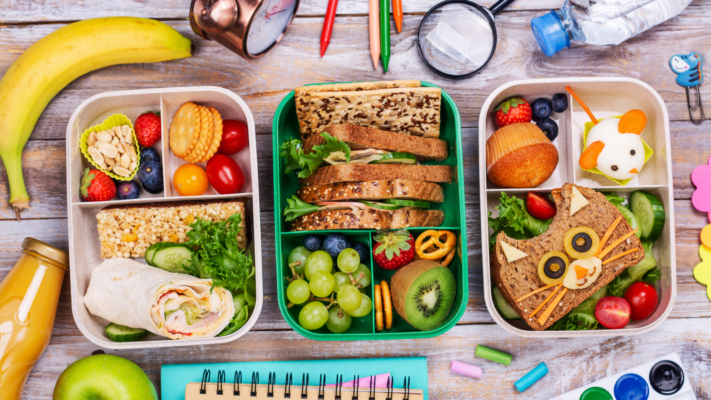
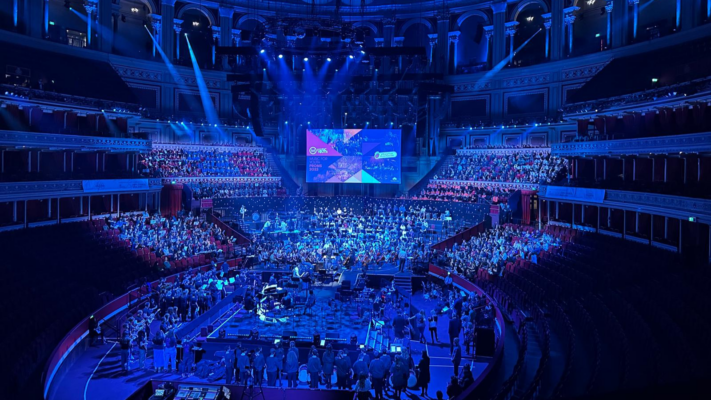
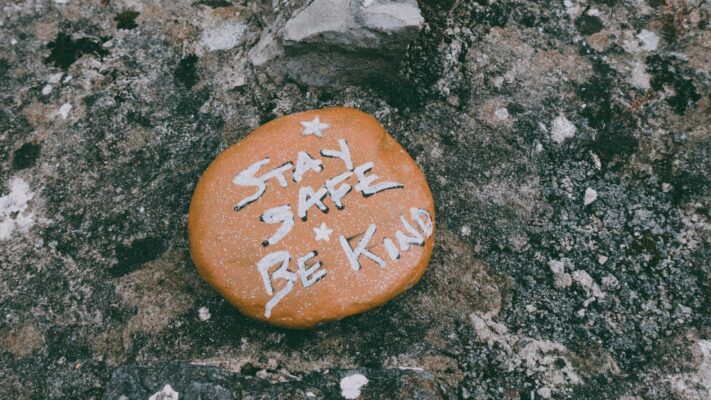

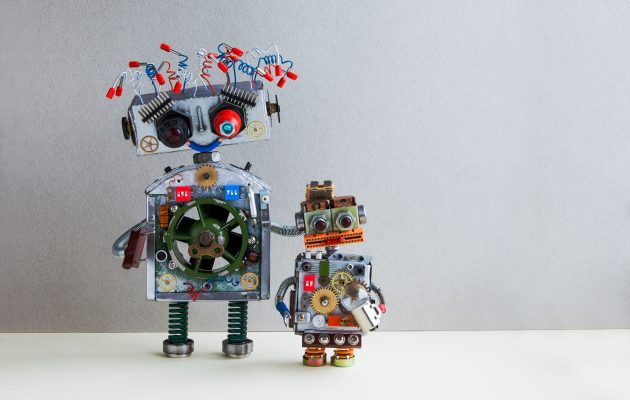
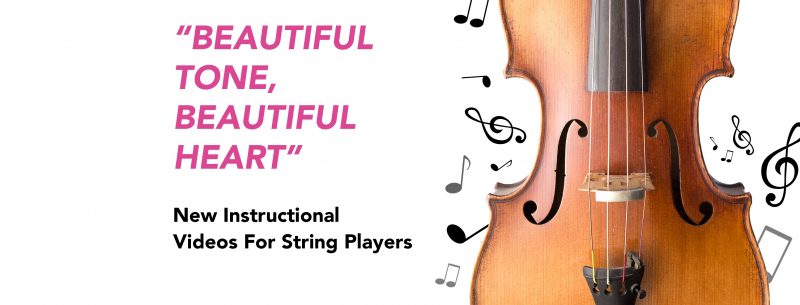
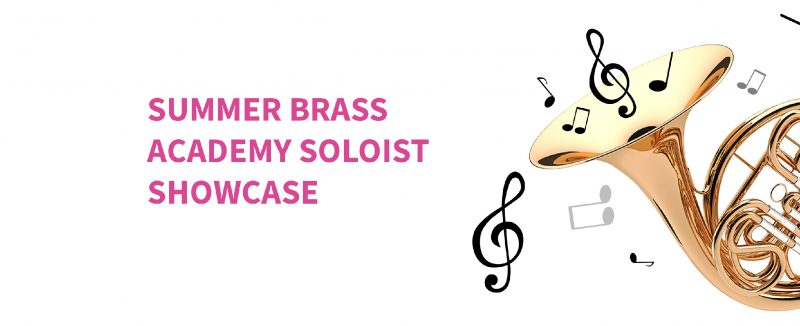
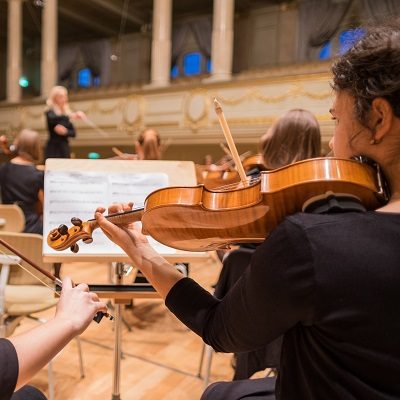
 Lucie Welch – Adviser, Services For Education
Lucie Welch – Adviser, Services For Education Jo Perrin - Interim School Support Lead, Adviser, Services For Education
Jo Perrin - Interim School Support Lead, Adviser, Services For Education


